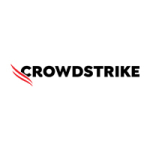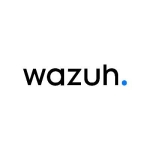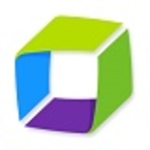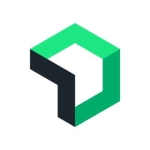I am a SOC lead, and we use Splunk Enterprise Security for alerting and working on incident review and incident response.
We have a hybrid environment. We have multiple clouds, and I am not sure if I know all of them. We have Azure Labs that we run for our students. We have cloud infrastructure. We have cloud applications on which we need visibility.
It is incredibly important that Splunk Enterprise Security provides end-to-end visibility into our environment. Especially being someone who goes through and reviews the work that my analysts are doing, I definitely need to be able to see what is happening all across different domains of our network.
We work for a large university, and we have different tenants. We have our students, we have our employees, and then we have our faculty as well. We definitely need to see what is happening across the domains and across all of those different tenants.
It saves so much time for the analysts, and it empowers analysts to carry out and triage an investigation, wherever needed. It is incredibly hard when you are working with different sources. I am sure everyone else knows that you cannot expect your analysts to be on the same page a hundred percent at the time. They might say, "Hey, I am going to go into this tool and look at these alerts here, or I am going to look at these learnings from this tenant." We need to be looking at all of those sources and all of those domain tenants at once. Being able to see that across the board and not having to jump through hoops to get the data that we want is extremely valuable. I do not have metrics for how much time it has saved because I do not know our life before Splunk. I know that it has done a great deal in saving time, and now with SOAR, that is exactly what we are looking into. We are looking into how we can empower that even more by combining it with Splunk Enterprise Security.
Splunk Enterprise Security has helped improve our organization’s ability to ingest and normalize data. Splunk is definitely a leader. I cannot imagine leaving and going to another toolset and losing the capabilities that I have and the knowledge that I have. One of my favorite parts is that Splunk really does work. It seems to me that they work with actual users on a regular basis, so they know the pain points and they know what our issues or our primary concerns are.
In the beginning, it did not help to reduce our alert volume, but over time, it has definitely reduced that. Something that I am working on primarily with our SOC right now is increasing our alert volume because we are at such a low rate because of the work that we can do with Splunk's capabilities. We are looking into what areas in the network we are not alerting on. We have these out-of-the-box solutions, but there is more that we can build on. It is empowering our analysts to be SOC analysts, but the more advanced employees can work towards the threat detection engineering side or SOAR playbooks development side or even just on the backend of setting up and working with the configuration.
I wish I knew the metrics for the reduction in the alert column. I do not have any approximation, but our SOC is very manageable. We are a small team, and the number of alerts varies. On average, we get about 300 alerts a day on the high end and 150 alerts on the low end. If it is a very slow day, such as a vacation for everyone, and we do not have a lot of activity going on in the network on our endpoints, it is very manageable for a small team. Our SOC team has four full-time employees, and then we have intern/student workers because we partner with the university. We have three of them. Overall, there are seven, but, of course, students are only able to work a maximum of 15 or 18 hours a week or something like that, so the amount of man-hours that we have is pretty low.
Splunk Enterprise Security provides us with the relevant context to help guide our investigations. There could be a little bit more, but that also depends on the analysts and where they are in terms of maturity. I have a lot of capability to go and expand what I need to, but others do need a little bit more guidance. It is not easy on the first look for someone who has never done it before, but after being taught or learning about it themselves, it is pretty easy. It can still do a whole lot. If we are looking at an anonymous login, we are getting context from different sources. If there is an activity that is going on in the host machine, such as we have some login from Russia, which has never happened before, there is a firing of alerts from the EDR. We can see our email gateway firing alerts regarding their account. That allows us to contextualize and correlate the activity very easily.
Splunk Enterprise Security has helped improve our organization’s business resilience. We are able to take action immediately when we need to. Especially with risk-based alerting, we are able to understand what needs attention right now. We do work with young junior analysts a lot, and we are able to teach them how to identify what needs action right now or what needs to be investigated or triaged immediately. We are basically protecting our crown jewels first rather than some low-hanging fruit that we see everyday, but we cannot take a look at them because we have some important things going on in our network.
Being able to aggregate detection and alerts from various sources is valuable. Like everyone else, we have a wide range of tools in our shop. We are able to stop at one spot and look at all the data. All the data is able to come through, and we can then jump from source to source or index to index. We can dig deep whenever we need to and get a good high-level understanding.
The first thing that comes to mind is a little bit of UI improvement. It sometimes can be a little bit buggy or it can be a little bit slow, but that varies from customer to customer.
They can continue building out the Splunk community. They can give incentives for customers to collaborate and expand on what they are working on but also provide the tools to do that. There are good resources such as Splunktern. I love the Splunk education and training platform. It is amazing, but I wish there was a little bit more. Especially with the training and applications, they should give us real-world use cases and a little bit more specific scenarios. Splunk is doing a much better job than a lot of other organizations or technology platforms, but they can give more information. I know a lot of my Splunk users do not even realize the things that they can do. On the user end or analyst end, they need to be more proactive by giving more of a heads-up. For example, I found out about Splunk research today. I have been using Splunk for two years. I wish I had known about that more. They can reach out more. The incentives can be anything. Some people love stickers, and some people love shirts. They can create that community a little bit more.
I have been using Splunk Enterprise Security for two years.
I do not have much to compare it to, but it is stable. We hardly have any issues, and if we do, they are intermittent.
The growth that we have seen in my time with our team has not been so much. However, we are adding more tools or trying to gain visibility into different areas of our network or applications that have already been there. Being able to throw some logs in and figure out that we should be monitoring this has been painless. We can just forward them all over. It takes an hour or so. We get the answers and the visibility that we need.
I have not used it very often. I have used it once or twice, but I would say that the engineers I have worked with have been extremely knowledgeable. They have helped so much. We were working on SOAR, and we were pretty new to it as a SOC. We were able to work all of that out with a Splunk engineer on a call. They were able to answer our questions. They knew our needs and goals, and they were able to guide us to meet those. That has been very effective for us. I would rate them a ten out of ten. I have not had any bad experiences.
We have had Splunk since I have been in this company.
Specifically, I cannot say what return on investment we are getting. However, when we look at other products, we know we are not going to have the same capabilities and we are not going to have the same response times and correlation capabilities. Even working with other vendors and getting their logs into Splunk can be a nightmare, and that is enough to make us say that we do not want to buy their product.
Personally, I have not evaluated other solutions. We do have some friends and family connections who use other solutions. Based on their stories, we will continue using Splunk.
I would rate Splunk Enterprise Security a nine out of ten. If it were a ten, it would do my job for me.





















